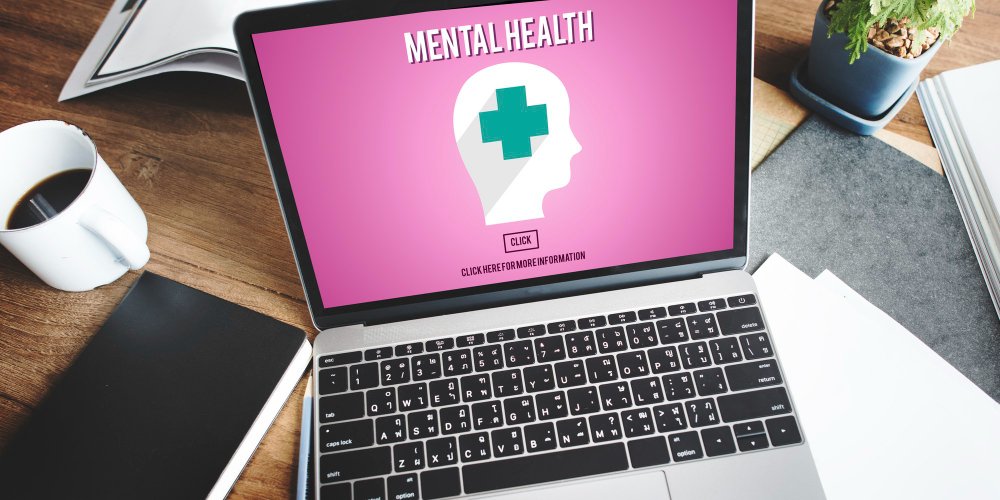In recent years, digital solutions have revolutionized the field of mental health, making care more accessible, personalized, and effective. With advancements in mental health app development, individuals now have a wide array of tools at their fingertips to manage their mental well-being. These digital platforms, ranging from mobile apps to teletherapy services, are transforming how people access and engage with mental health care. This article explores ten key benefits of using digital solutions for mental health, highlighting how these innovations are making a significant impact on improving mental health outcomes.
Table of Contents
Toggle1. Increased Accessibility
One of the most significant benefits of digital mental health solutions is their ability to increase accessibility to care. Many people, especially those in remote or underserved areas, may find it challenging to access traditional mental health services due to distance, cost, or limited availability of providers. Digital platforms, such as mental health apps and online therapy services, break down these barriers by offering access to care from anywhere with an internet connection. This increased accessibility allows more people to seek help when they need it, regardless of their location.
2. Convenience and Flexibility
Digital mental health solutions provide unmatched convenience and flexibility for both patients and providers. Traditional therapy often requires scheduling appointments during business hours, which can be difficult for people with busy schedules. With digital solutions, individuals can access mental health resources at any time, whether it’s through a late-night chat with a therapist or a quick session with a mindfulness app during a lunch break. This flexibility allows users to fit mental health care into their daily lives without added stress.
3. Personalized Care
Personalization is a major advantage of digital mental health tools. Many digital platforms use algorithms to tailor content and recommendations to the individual user’s needs. For example, mental health apps may offer personalized coping strategies based on the user’s input about their mood, symptoms, and preferences. This personalized approach ensures that users receive the most relevant and effective support, which can lead to better outcomes in managing mental health conditions.
4. Anonymity and Privacy
For many individuals, the stigma associated with seeking mental health care can be a significant barrier. Digital solutions offer a level of anonymity and privacy that can encourage more people to seek help. Many apps and online platforms allow users to access mental health resources without having to reveal their identity, which can reduce the fear of judgment or discrimination. This anonymity is particularly important for those who may be hesitant to seek help in person due to concerns about privacy or social stigma.
5. Continuous Monitoring and Support
Digital mental health tools can provide continuous monitoring and support, which is essential for managing mental health conditions effectively. For example, some apps allow users to track their mood, sleep patterns, and symptoms over time, providing valuable insights into their mental health. These tools can also send reminders and prompts to engage in healthy behaviors, such as practicing mindfulness or taking medication. Continuous monitoring helps users stay on top of their mental health and seek help when they notice changes or worsening symptoms.
6. Cost-Effectiveness
Mental health care can be expensive, particularly for those without insurance or with limited coverage. Digital solutions often offer a more cost-effective alternative to traditional therapy. Many mental health apps are free or available at a low cost, making them accessible to a wider audience. Online therapy platforms also tend to be more affordable than in-person sessions, offering flexible pricing options and subscription plans. By reducing the financial barrier to care, digital solutions make mental health support more accessible to those who need it.
7. Variety of Treatment Options
Digital mental health platforms offer a wide range of treatment options, catering to different needs and preferences. From cognitive-behavioral therapy (CBT) apps to virtual reality (VR) experiences for managing anxiety, there is a digital tool for nearly every mental health concern. This variety allows users to find the treatment that works best for them, whether they prefer self-guided programs, one-on-one therapy sessions, or peer support groups. The ability to choose from a range of options ensures that individuals receive the type of care that aligns with their personal preferences and needs.
8. Enhanced Engagement and Motivation
Digital mental health tools are designed to be engaging and user-friendly, which can help increase motivation and adherence to treatment. Many apps use gamification techniques, such as rewards, challenges, and progress tracking, to keep users engaged in their mental health journey. This interactive approach makes it easier for individuals to stick with their treatment plans, leading to better outcomes. Enhanced engagement is particularly important for young people, who are more likely to use and benefit from digital tools that incorporate elements of gaming and social interaction.
9. Early Intervention and Prevention
Digital solutions can play a crucial role in early intervention and prevention of mental health issues. Many mental health apps are designed to help users recognize early signs of distress and take proactive steps to address them. By providing tools for self-assessment, coping strategies, and access to professional support, these apps can help individuals intervene before their symptoms escalate. Early intervention is key to preventing more severe mental health conditions and can significantly improve long-term outcomes.
10. Global Reach and Cultural Sensitivity
Digital mental health solutions have the potential to reach a global audience, making mental health care accessible to people in diverse cultural and geographical contexts. Many platforms are available in multiple languages and are designed to be culturally sensitive, ensuring that they can be used effectively by individuals from different backgrounds. This global reach allows mental health care to extend beyond traditional borders, providing support to individuals who may not have access to mental health services in their own countries or communities.
Conclusion
Digital solutions for mental health offer numerous benefits, making care more accessible, personalized, and engaging. From increased accessibility and convenience to enhanced engagement and early intervention, these tools are transforming the way people manage their mental health. As technology continues to evolve, digital mental health solutions will play an increasingly important role in providing effective and accessible care to individuals worldwide. By embracing these tools, we can help ensure that more people receive the support they need to maintain their mental well-being and lead fulfilling lives.




